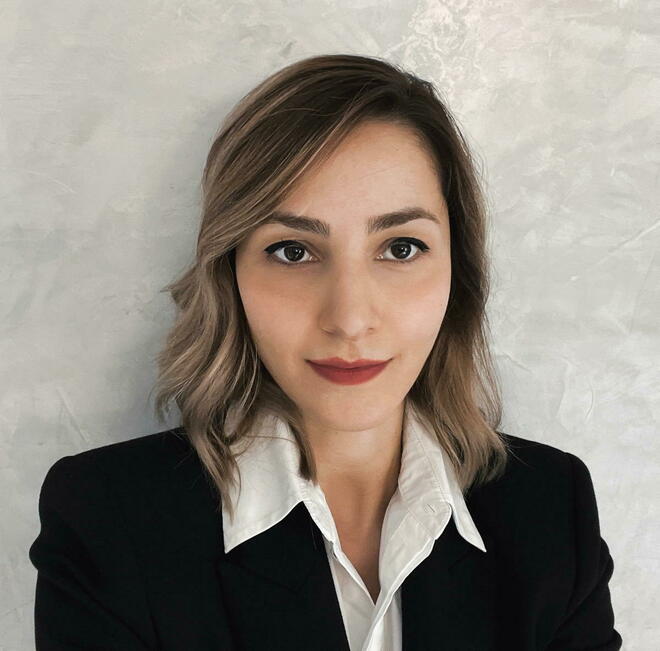The message coming from Iran brought bad news. Sent on January 3 via WhatsApp from the mobile phone of Massi Kamari’s mother, a political refugee living in France, it urged the Iranian woman to immediately call the number. At the other end of the line was an agent from the Iranian Ministry of Intelligence.
The man had just summoned the parents of this 42-year-old activist, who has participated in several demonstrations in Paris in support of the popular uprising in Iran. “The agent then showed my parents photos of me protesting in France, as well as excerpts of conversations in which I asked them about the situation in Iran and why they weren’t going onto the rooftops to chant slogans,” Massi Kamari told Le Point. “Then he claimed that I was encouraging them to protest, and he kept my mother’s phone so that she would pressure me to call back.”

Initially refusing to comply with the demand, the Iranian woman eventually decided to call the number on the same day, solely to reassure her elderly parents. She made sure beforehand to record the conversation using a friend’s mobile phone. After endless rings without an answer, a male voice finally picked up. “Hello, Mrs. Kamari, how are you?” asked the intelligence agent in a chilling tone. After a few customary pleasantries, he got to the point: “Look, the action you carried out there [in France] is an action against national security [of Iran],” he accused.
Absurd Accusations
Prepared for such absurd allegations, Massi Kamari was not intimidated: “The action I am carrying out here [in France] is legal,” she asserted firmly. “And under the law of this country, it poses no problem.” But the man on the other end of the line remained unmoved: “I say that the action you are carrying out there is an action against the Islamic Republic and the security of this country,” he insisted. “I have evidence to support my claim and a file exists. On your Instagram page, you publish articles aimed at overthrowing the Islamic Republic and encourage the entire population of Iran to commit actions against the security of this country.”
Although the Iranian woman argued that her personal account is private and that she cannot incite 83 million Iranians to take to the streets, it made no difference. The agent became even more threatening: “You yourself, like the French government, will have to answer [for your actions].” Present on French territory since 2018 with political refugee status, the activist did not feel entirely safe from the regime’s agents. “For years, the Islamic Republic has threatened its opponents abroad and has not hesitated to kill them,” Massi Kamari reminded, who joined last year the association HamAva, a national coalition for a democratic and secular Iran, without defining herself as an “active activist.”
Boldness
The Iranian woman then recalled the case of journalist Masih Alinejad, who was the target of an attempted kidnapping and assassination in the United States last year, thwarted only by the FBI. Thirty-one years ago, it was in Suresnes, on the outskirts of Paris, that the last Prime Minister under the Shah and Iranian opponent Chapour Bakhtiar was brutally assassinated.
“You never know what to expect from the Islamic Republic,” she warned. Yet the regime’s agent was not planning to act directly in France to silence her, but in Iran, by pressuring her parents. “Your parents and your sister are encouraged by you to carry out an action against the national security of our country, which is another offense punishable by law,” the official warned shamelessly. “The third problem is that your father financially assists you, which is no longer the help of a parent to a child, but the help of a person who holds French nationality and is taking action against the Islamic Republic.”
Shaken by such audacity, Massi Kamari, who also assured she does not receive financial support from her family, tried to remind her interlocutor of the absurdity of such accusations: “Nowhere in the world does a family pay on behalf of someone else,” she emphasized.
– “In Iran, yes,” he replied immediately. “The Islamic Republic has its own laws, just as France has its own. Do as you wish,” he continued. “Continue if you want, but your family will answer for it here.”
– “My family answers for its own actions,” she shot back. “I am 42 years old, and it makes me laugh to hear you.”
– “Listen to me,” he interrupted. “Your mother, at her age, will go to [Evin Prison], your sister, at her age, will go to Evin. Your father too, and there, they will be interrogated.”
– “Okay, interrogate them,” she despaired. “If they have done something, go interrogate them.”
Courage
After hanging up, Massi Kamari blocked her mother’s and father’s numbers. She still receives news from her parents through another sister living abroad, who assured her they had not been further harassed. After long hesitation, the activist decided not to succumb to fear and released the recording of the call in an interview on Thursday with Voice of America in Persian. “The Islamic Republic has always relied on threats,” she explained. “It counts on the silence of victims to achieve its ends. That will not happen with me.”
In France, Massi Kamari decided to alert, via HamAva, the Presidency of the Republic, the Ministry of Foreign Affairs, and the Ministry of the Interior. “After all,” she said to herself, “there is no question of taking fewer risks than Iranian protesters who continue to take to the streets at the peril of their lives for a free and democratic Iran.” This is how she learned that other Iranians in France had experienced the same unpleasant situation.

